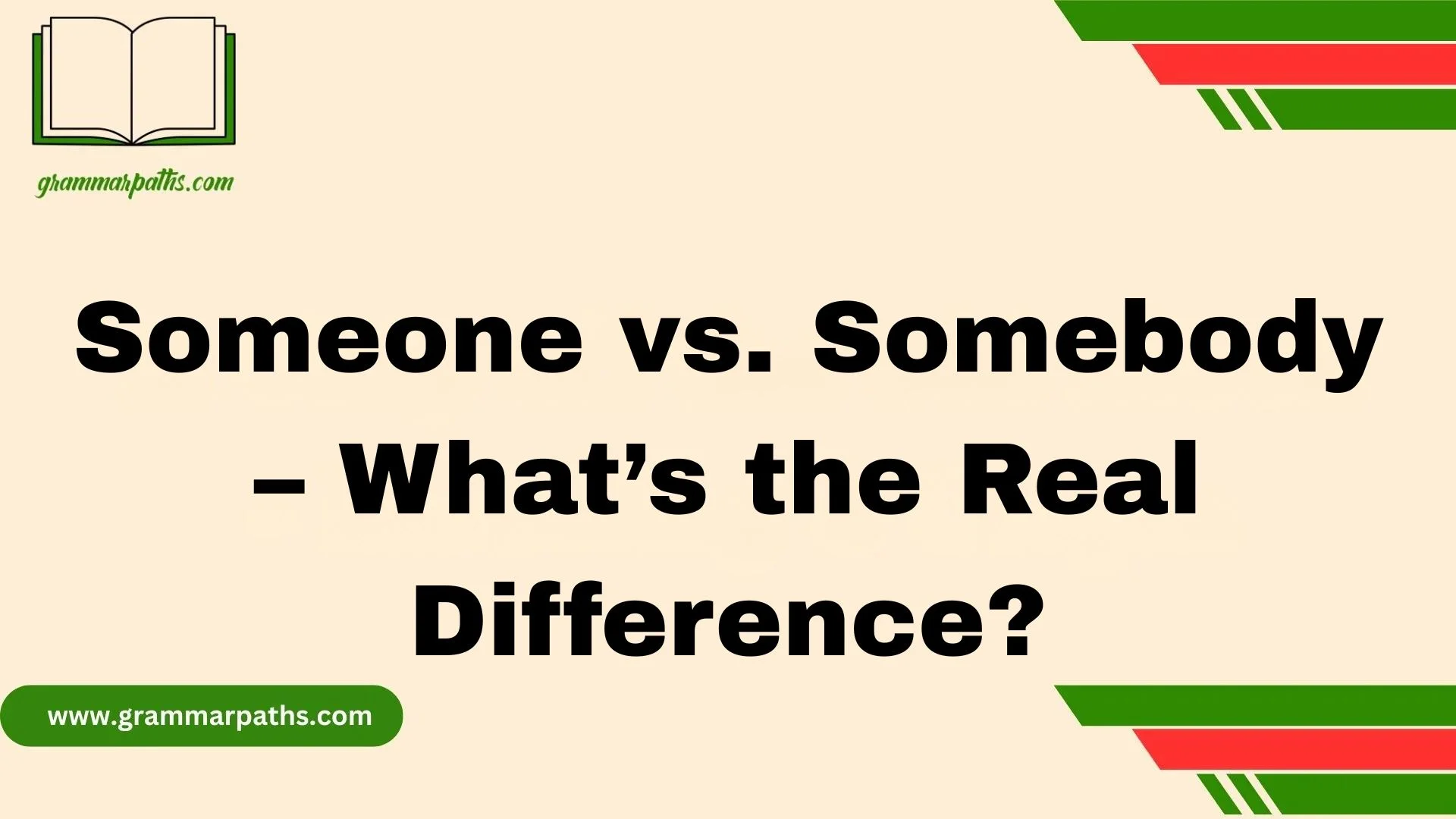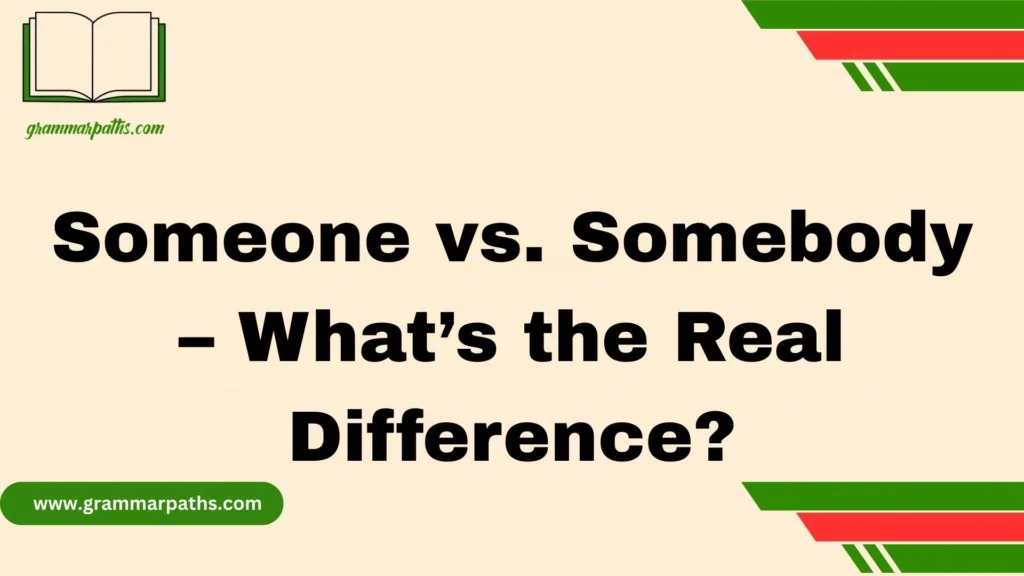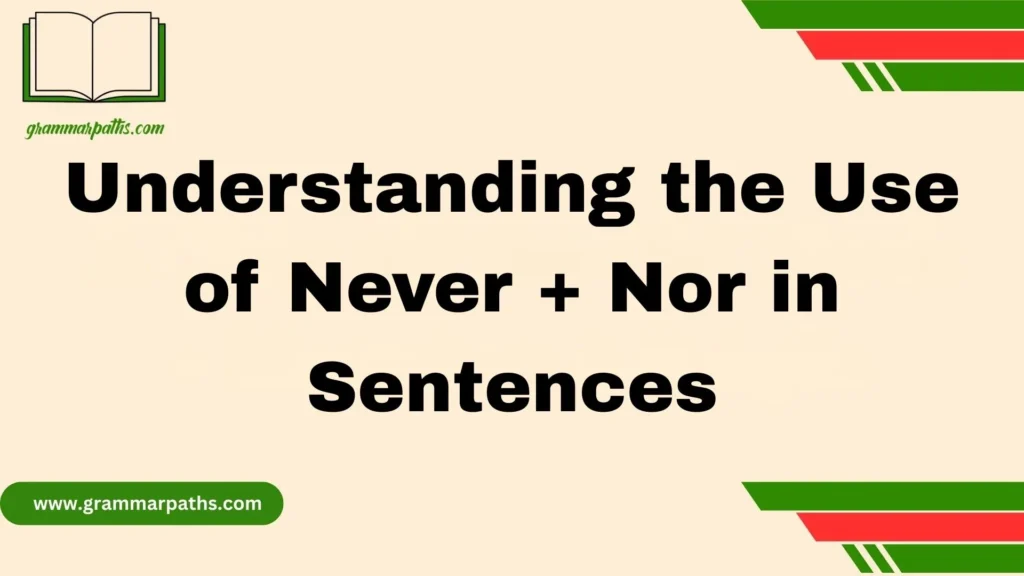The phrase Someone vs. Somebody – What’s the Real Difference? may seem like a silent, everyday topic, but it generates surprising confusion. In English, these word pairs can be interchangeable to many people, but a closer look reveals subtle, linguistic differences. As a writer and language coach, I’ve helped clients with composing emails, business letters, and even casual dialogue, and I’ve seen how using either word can affect tone, emotion, and even clarity. Someone might carry a slightly more formal or professional edge, often preferred in a report or official message, while somebody brings a friendly, more relaxed feel in personal contexts. These aren’t just twins in form—they’re siblings with distinct personalities, shaped by context, setting, and emotional intent.
This article explores how native and non-native speakers face challenges in learning when trying to master these grammar nuances. Through experience, I’ve found the rules of language aren’t just about correctness—they’re about precision, empathy, and connecting with your audience. Whether you’re writing a letter, crafting a warmer message, or making a better choice in a formal document, deciding on “someone” or “somebody” depends on your style, your tone, and the context. With the right guide, we can ensure clarity, uphold correctness, and make our speech not only grammatically accurate, but emotionally effective.
Understanding the Basics of Someone and Somebody
Both someone and somebody function as indefinite pronouns. They refer to an unspecified person — but not just any person, rather a particular but unknown individual.
Definitions and Core Meaning
- Someone: Refers to an unspecified person. Used widely in formal and informal speech.
- Somebody: Also means an unspecified person. Slightly more informal and conversational in tone.
Both words fill the same grammatical role and are often interchangeable. For example:
- Someone left their umbrella here.
- Somebody left their umbrella here.
They mean the same thing and most people wouldn’t notice a difference in casual conversation.
Origins and Etymology
Interestingly, someone and somebody share roots going back centuries.
- Someone combines some + one. “One” has long served as a pronoun for an unspecified person since Middle English (around 12th century).
- Somebody merges some + body. “Body” was once a common poetic term for “person” or “human being.”
Both terms emerged during the Middle Ages but somebody often carried a more physical or informal feel historically, while someone felt a bit more neutral or abstract.
Similarities Between Someone and Somebody
Interchangeability in Everyday Use
In everyday American English, someone and somebody can be swapped in most contexts without changing meaning or tone. Here are a few examples:
| Sentence Using Someone | Sentence Using Somebody |
| Someone called you while you were out. | Somebody called you while you were out. |
| I need someone to help me move this box. | I need somebody to help me move this box. |
| There’s someone waiting outside. | There’s somebody waiting outside. |
This interchangeability holds true in most casual conversations, emails, and narratives.
Common Expressions Using Both
Some phrases favor one over the other slightly, but many idioms allow both. Examples:
| Expression | Common Usage | Notes |
| Someone special | Someone | More formal, romantic tone |
| Somebody’s watching you | Somebody | Informal, conversational |
| Someone important | Someone | Formal or written contexts |
| Somebody to love | Somebody | Popular song lyric, informal |
Key Differences and Usage Preferences
Formal vs Informal Contexts
A key difference lies in the level of formality:
- Someone tends to appear more often in formal writing: academic papers, business emails, official documents.
- Somebody leans toward informal speech: everyday conversations, storytelling, casual texts.
Example:
- Someone will attend the meeting on your behalf. (formal)
- Somebody’s gotta fix this mess! (informal)
Spoken vs Written English
Studies of American English usage reveal that somebody appears more often in spoken language, while someone dominates written texts. For instance:
- According to the Corpus of Contemporary American English (COCA), someone occurs about 3 times more frequently in written sources like newspapers and books.
- Somebody is more common in transcripts of conversations and informal media.
Subtle Connotative Differences
Beyond formality, there’s a slight tone difference:
- Somebody can imply importance or prominence. Saying “He’s somebody now” suggests the person has status or recognition.
- Someone feels more neutral and generic.
Grammar Rules and Constructions
Negative Constructions
Both someone and somebody rarely appear in negative sentences. Instead, English speakers prefer anyone or anybody when negating.
| Sentence Type | Correct Usage | Incorrect Usage |
| Affirmative | Someone is at the door. | Somebody is at the door. (acceptable) |
| Negative | I didn’t see anyone. | I didn’t see someone. (rare/unusual) |
| Question | Did anyone call? | Did someone call? (means one person, not any)* |
This is because someone and somebody imply existence, so negation shifts naturally to anyone and anybody.
Questions and Conditional Sentences
In questions, someone and somebody tend to ask about the existence of a particular person expected to be found:
- Is someone at the door? (expecting one person)
- Would somebody like to volunteer? (inviting a person to step forward)
In conditional sentences, both are acceptable:
- If someone calls, tell them I’m out.
- If somebody wants to join, they’re welcome.
Contextual Usage and Sentence Examples
Someone in Action
Someone is versatile across contexts:
- Formal writing:
Someone must submit the report by Friday. - Emails:
If someone could help me with this, that’d be great. - News:
Someone was arrested last night in connection with the theft.
Somebody in Action
Somebody shines in informal speech and storytelling:
- Conversations:
Somebody told me there’s a party tonight. - Storytelling:
Somebody knocked on the door just now. - Song lyrics & pop culture:
“Somebody once told me…” (Smash Mouth)
Side-by-Side Comparison Table
| Context | Someone Example | Somebody Example |
| Formal Writing | Someone should review this document. | Somebody should review this document. (less formal) |
| Informal Speech | Someone’s at the door. | Somebody’s at the door. |
| Negative Sentence | I didn’t see anyone there. | I didn’t see anybody there. |
| Question | Is someone coming to the meeting? | Is somebody coming to the meeting? |
Common Mistakes and Misconceptions
- Confusing someone/somebody with anyone/anybody in negatives and questions
- Overusing somebody in professional writing, making tone too casual
- Using someone when somebody fits better in informal contexts, causing awkwardness
Expert Opinions and Linguistic Insights
Linguists agree: “Someone” and “somebody” are near synonyms, with minor stylistic differences rather than strict rules.
Dr. John Algeo, a professor of linguistics, notes:
“In American English, ‘someone’ leans slightly more formal, whereas ‘somebody’ feels more colloquial. The choice often reflects speaker preference or rhythm.”
According to the Merriam-Webster Dictionary and the Cambridge Dictionary, both words share identical definitions and interchangeable use, with only subtle contextual flavor separating them.
Practical Tips for Choosing Between Someone and Somebody
- Use someone in formal writing and official communication.
- Choose somebody when speaking casually or writing conversationally.
- When expressing importance or prominence, somebody adds a punch: “He’s somebody now.”
- Avoid using someone or somebody in negatives and questions; prefer anyone or anybody.
Quick Decision Table
| Situation | Recommended Word |
| Formal letters or reports | Someone |
| Casual conversations | Somebody |
| Talking about status/prominence | Somebody |
| Negative sentences or questions | Use anyone/anybody |
Conclusion
When it comes to Someone vs. Somebody – What’s the Real Difference?, there’s no big difference in meaning, but small details in tone, formality, and style matter. While both words can refer to an unspecified person and are often used interchangeably, choosing between them depends on the context. In formal situations, someone may sound polished and professional, while somebody feels more casual, friendly, and common in everyday speech.
Mastering these subtle distinctions allows for clear, precise communication and helps you connect better with your audience, whether you’re writing a business email, a personal message, or a scientific report.
FAQs About Someone vs. Somebody
1. Are “someone” and “somebody” completely interchangeable?
Not always. While they usually mean the same thing, someone is preferred in formal writing, and somebody sounds more casual.
2. Which is correct: “someone left their bag” or “somebody left their bag”?
Both are grammatically correct, but in a business report or professional setting, “someone left their bag” feels more polished.
3. Do native speakers care about the difference?
Most native speakers use them without much thought, but writers, editors, and language professionals notice the subtle tone difference.
4. Should non-native speakers learn to use them differently?
Yes. Understanding the nuances helps in mastering English grammar and improves clarity in both formal and informal contexts.
5. Is one word warmer or more friendly?
Yes. Somebody can sound warmer, making it useful in relaxed conversation or friendly dialogue, while someone is neutral and refined.
References
- Merriam-Webster Dictionary: Someone
- Cambridge Dictionary: Somebody
- Corpus of Contemporary American English (COCA) – https://www.english-corpora.org/coca/
- Algeo, John. The Origins and Evolution of English Pronouns, 2010.

Grace Marie is the dedicated writer behind GrammarPaths.com, where she shares her passion for English grammar, idioms, and writing mastery. With a strong background in language studies and years of experience helping learners improve their communication skills, Grace creates clear, practical, and engaging content that makes English easy to understand.












